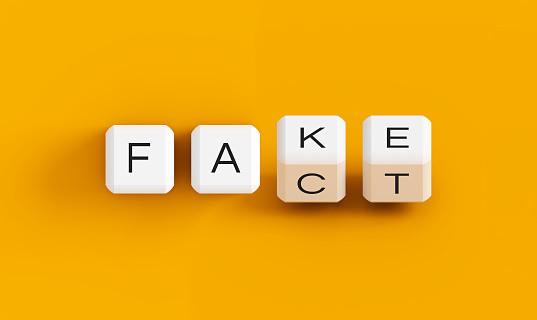Explore the World's Best Ideas
Join today and uncover 100+ curated journeys from 50+ topics. Unlock access to our mobile app with extensive features.
Misinformation on social media
There has been tremendous concern recently over misinformation on social media. Unfortunately, the concern is justified, as the consequences of believing false information are shaping the future of nations and affect our collective health.
One popular theory why people fall for misinformation they find online is that they lack digital literacy skills, yet, very little research has investigated the link between digital literacy and susceptibility to believe false information.
6
73 reads
Definitions of "Digital literacy"
There are two different definitions for digital literacy.
- It is the possession of basic digital skills required to effectively find information online.
- It's asking whether people understand how platforms decide what to show in the newsfeed.
One study found that digital literacy is indeed a good predictor of one's ability to discern accurate information from falsehoods. In addition, both digital literacy measures independently predicted the tendency of participants to rate factual news as more accurate than false news.
6
67 reads
The willingness to share false information
A study showed that people who were more digitally literate were just as likely to say they'd share false articles as people who lacked digital literacy.
Even people with high digital literacy were not immune from sharing false news. Potential reasons are that although people don't want to spread misinformation, social media is quick and distracting. People are drawn to social validation and other feedback such as likes on their posts. This means they often forget to ask if a story is true when considering whether to share it.
6
59 reads
No one is immune from the potential to spread misinformation
Just because a piece of false information parading as “news” has been shared millions of times doesn’t necessarily mean that millions believed it to be true.
At the same time, just because someone is better at distinguishing fact from falsehood if they stop to think about it, does not necessarily mean they will share more accurate information.
6
50 reads
IDEAS CURATED BY
Michael Mcbride's ideas are part of this journey:
Learn more about psychology with this collection
The power of gratitude and positive thinking
Ways to improve your mood
Simple daily habits for a happier life
Related collections
Similar ideas
5 ideas
How Accurate Are Personality Tests?
scientificamerican.com
2 ideas
Media Multitasking Disrupts Memory, Even in Young Adults
scientificamerican.com
8 ideas
How We Make Sense of Time
scientificamerican.com
Read & Learn
20x Faster
without
deepstash
with
deepstash
with
deepstash
Personalized microlearning
—
100+ Learning Journeys
—
Access to 200,000+ ideas
—
Access to the mobile app
—
Unlimited idea saving
—
—
Unlimited history
—
—
Unlimited listening to ideas
—
—
Downloading & offline access
—
—
Supercharge your mind with one idea per day
Enter your email and spend 1 minute every day to learn something new.
I agree to receive email updates


